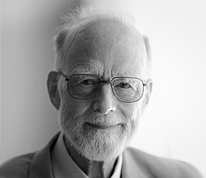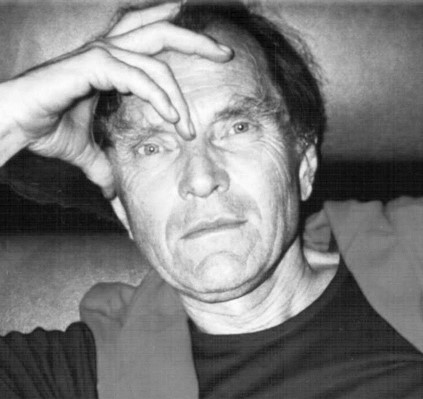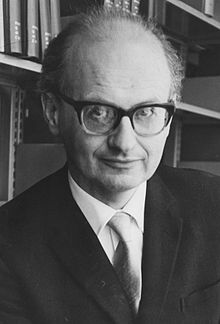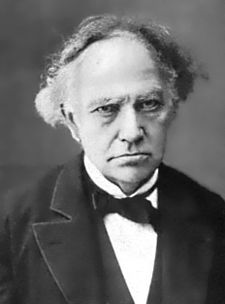History and Philosophy of Types

Tomas Petricek, University of Cambridge
http://tomasp.net | tomas@tomasp.net | @tomaspetricek
\[\definecolor{mc}{RGB}{0,32,172} \definecolor{cc}{RGB}{172,0,32}\]
What is a type?
What are types for?
Uses of types and type systems
- Detecting errors via type-checking
- Support for structuring large systems
- Documentation
- Efficiency
- Whole-language safety
Source: Lecture notes from Types lecture
History of types
Archeology of computer science thought

Theory of types and \(\lambda\)-calculus

Bertrand Russell, 1908
Class of all classes that do not contain themselves as elements
Alonzo Church, 1940
\(\lambda\)-calculus and types as foundations of mathematics (not programming!)
Mathematical logic as based on the theory of types

Base formulas have type \(0\)
Formula that uses a formula of
type \(n\) has a type \(n+1\).
We must interpret “I am lying” as “There is a proposition of order \(n\) which I affirm and which is false”. This is a proposition of order \(n+1\).
Meaning of types in logic
It is unnecessary, in practice, to know what objects belong to the lowest type (...). In practice, only the relative types of variables are relevant.
We refrain from making more definite the nature of the types \(\omicron\) and \(\iota\), (...) the formal theory admits a variety of interpretations.
Types are not sets of values!
Types appear in Algol 58 Zurich meeting
A data symbol falls in one of the following classes:
a) Integer b) Boolean c) General
It is also remarkable that (...) there is no clue that in this process the technical term “type” from mathematical logic had any role.
From expression types to computation types

John McCarthy, Tony Hoare, 1970s
McCarthy’s theory was developed by Hoare, who proposed that data types in PLs could be understood as sets of data values.
From expression types to computation types
\(r \leftarrow s\)
From expression types to computation types
\({\color{cc} r:{ref}_\rho, s:{ref}_\sigma} \vdash r \leftarrow s : \color{mc} unit~\&~\{ write~\rho, read~\sigma \}\)
From expression types to computation types
What is the set of a type: \(\color{mc} unit~\&~\{ write~\rho, read~\sigma \}\)?
Types are not sets but relations!
Express meaning of high-level types as relational,
extensional constraints on the behaviour of compiled code
Source: Nick Benton: What we talk about when we talk about types
Types in modern programming
- Imperative - Effects and monads
- Unsound - Dart, TypeScript
- Super sound - Idris, Agda, F*
- Relatively sound - F# type providers
We are not getting closer to one right definition!
Philosophy of types
Against a formal universal definition

Francis Bacon and scientific method

Idols of the tribe
The human Intellect, (...), easily supposes a greater order and equality in things than it actually finds.
Idols of the market
The confusions of language: one and the same name being applied indifferently to things that are not of the same nature.
Feyerabend's epistemological anarchism

Should there be a clear definition of type?
To 'clarify' the terms does not mean to study the additional properties of the domain in question, it means to fill them with existing notions from the entirely different domain of logic.
Lakatos and research programmes

Science consists of multiple competing mutually inconsistent research programmes.
Hard core and protective
belt of auxiliary assumptions
[Core assumptions] are not to be blamed for any apparent failure. Rather, the blame is to be placed on the less fundamental components.
Lakatos and concept stretching

A new counterexample of a previously inconceivable form is discovered
In their critical zeal [the refutationists] stretched the concept of polyhedron, to cover objects that were alien to the intended interpretation.
We do not notice it & we cannot unthink it!
Concept stretching and functions

I turn aside with a shudder of horror from
this lamentable plague of functions
which have no derivatives.Charles Hermite, 1893
Concept stretching and types

I turn aside with a shudder of horror from
this lamentable plague of type systems
which have no soundness proof.Anonymous on Hacker News, 2015
Feyerabend's epistemological anarchism

What is the correct scientific method?
To those who look at the rich material provided by history, it will become clear that there is only one principle that can be defended under all circumstances. It is the principle: anything goes.
Living without clear notion of 'type'

Living without clear notion of 'type'
Meaning is use
How we use types in language?
Construct interesting contexts for types!
Types as scientific entities
What can we cause with types?
We can experiment without having theory!
Summary
There is one principle: Anything goes

Summary
Science is much more ‘sloppy’ and ‘irrational’
than its methodological image.
Precise answers “hamper the growth of knowledge” and
“deflect the course of investigation into narrow
channels of things already understood”.
Paul Feyerabend, Against Method
Imre Lakatos, Proofs and Refutations
Where to find more?
What can programming language research learn from the philosophy of science?
tomasp.net/blog/2014/philosophy-pl
Against the definition of types
tomasp.net/blog/2015/against-types
Philosophy of science books every computer scientist should read
tomasp.net/blog/2015/reading-list